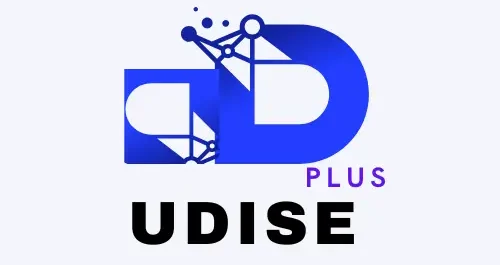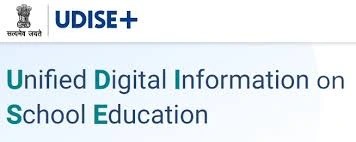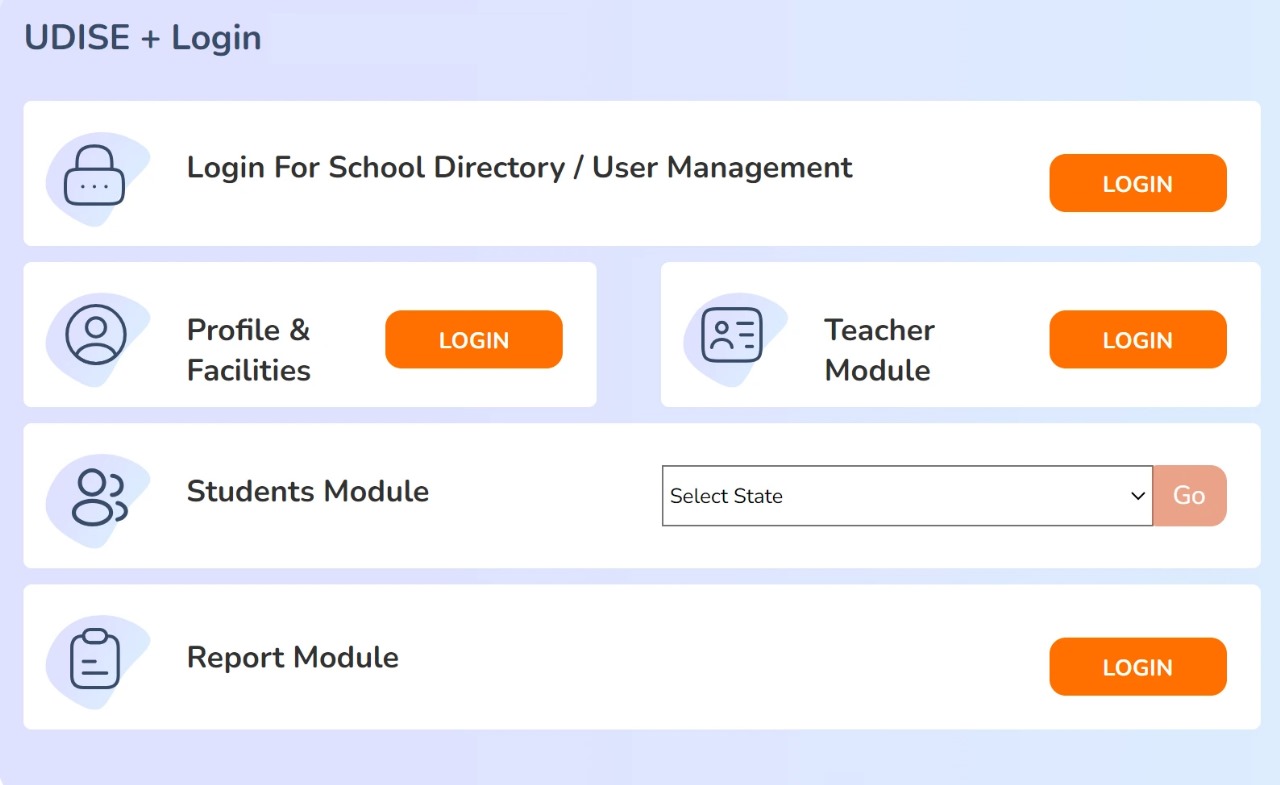Introduction — What is UDISE Plus?
UDISE Plus (commonly written UDISE+) — the Unified District Information System for Education Plus — is India’s national educational management information system (EMIS). It collects, consolidates and reports school-level information across states and union territories, modernizing the earlier UDISE system with online, near real-time data collection and a modular platform. UDISE+ integrates student, teacher, infrastructure, finance and learning-outcome modules into one unified portal to inform education policy, target funding, monitor implementation and improve transparency at local, district and national levels.
Targeted funding & infrastructure planning
Accurate school profiles let governments identify gaps (classrooms, toilets, water, electricity) and prioritise funds and projects where they are most needed.
Teacher deployment & vacancy tracking
Teacher module data supports analysis of pupil–teacher ratios, staffing gaps and transfer histories to inform recruitment and transfers.
Enrollment & retention monitoring
The student module enables enrollment tracking, dropout analysis and cohort progression dashboards to target retention interventions.
Learning outcomes & program evaluation
Assessment and learning modules feed district/state dashboards so remedial programmes and curriculum changes can be evidence-led and targeted.
Key features & modules
Profile & Facility
School identity, geo-coordinates, infrastructure inventory, facility status.
Student Module (SDMS)
Enrollment, transfers, attendance, unique student IDs to avoid duplication.
Teacher Module
Teacher profiles, qualifications, deployment and training records.
Finance & Grants
Receipts, expenditures and fund utilisation tracking for schemes.
Learning Outcomes
Assessment data to inform remedial actions and curriculum adjustments.
Reports & DCF
Dashboards, DCF exports and state/national aggregates for policymaking.
How UDISE Plus Works — Data Flow, SEO, and Usage
How UDISE Plus Collects Data (The Flow)
School-level Entry
School heads/data-entry operators log in with UDISE codes and fill DCFs. Prefilled details are verified and updated annually.
Circle/Block Review
Block MIS coordinators review DCFs, unlock or return them for corrections.
District Validation
District Educational Officers check, approve/reject records, ensuring accountability.
State & National Aggregation
State MIS consolidates, locks, and submits data for Ministry aggregation & national reporting.
SEO Best Practices for UDISE Plus Content
- Use keyword “udise plus” in title, intro, and 2–3 subheadings.
- Include variations: UDISE+, Unified District Information System for Education, EMIS, APAAR ID, PEN.
- Keep density natural; aim for semantic coverage (student tracking, teacher roster, infrastructure inventory).
- Use structured headings (H1–H3) for SEO & readability.
Step-by-step: Accessing UDISE Plus
| Step | Details |
|---|---|
| Login | Go to official portal, enter 11-digit UDISE code & password (issued by Block MIS). |
| Dashboard | Modules: Profile & Facility, Student, Teacher, Finance, etc. |
| First Actions | Verify prefilled school info, update enrollment, save drafts, finalize only after review. |
Data Entry Best Practices
Accuracy
Use correct UDISE codes, check geo-coordinates, and avoid typos that cause duplication.
Documentation
Maintain registers, receipts, and source docs for audits.
Identifiers
Update PENs/APAAR IDs immediately when transfers occur.
Prefilled Checks
Cross-check prefilled data, validate school upgrades/mergers.
Practical Walkthrough
Profile & Facility Module
- Confirm school details: name, type, location.
- Enter classrooms, electricity, water, sanitation, ICT & library resources.
Teacher Module
- Add teacher records with qualifications, recruitment, training.
- Mark status (in-service, leave, transferred); handle transfers via portal workflows.
Student Module: Unique Identifiers and Tracking
The student module in UDISE Plus ensures accurate tracking of enrollment, attendance, and learning continuity with unique IDs like PENs and APAAR. It helps prevent duplication and supports entitlements linked to Aadhaar/DBT.
Common Issues & Fixes
- Prefilled DCF mismatches: Cross-check, return via Circle MIS, or request unlock.
- Password reset issues: Contact Block MIS; maintain secure offline register.
- Finalization lock: Request Circle/District MIS unlock with justification.
- Transfer data missing: Use transfer flow and reassign PENs/APAAR IDs.
Policy Impact
Verified UDISE Plus data informs national and state planning, including:
- Identifying single-teacher schools and facility gaps.
- Shaping teacher recruitment and training programs.
- Targeting funds for infrastructure and ICT access.
- Designing retention programs and remedial learning schemes.
Data Security & Compliance
- Role-based access control for authorized editing.
- Audit logs for accountability.
- State SOPs for password & offline backups.
- Consent-based Aadhaar linking, where applicable.
Case Studies & Insights
- Dropout rates improving, but secondary retention still a challenge.
- ICT and teacher deployment gaps persist across regions.
- Targeted programs addressing electricity, sanitation & digital access.
Best-Practice Checklist for Schools
- Keep paper backups of student & teacher records.
- Verify prefilled DCFs and update annually.
- Finalize data only after full validation.
- Train at least two staff in DCF entry & recovery.
- Use dashboards to spot anomalies early.
- Engage parent committees to verify demography data.
How States and Districts Can Improve UDISE Plus Adoption
- Conduct periodic training camps with online + hands-on lab sessions.
- Circulate short video tutorials via WhatsApp/Telegram for remote schools.
- Incentivize accuracy by linking small grants/recognition to data quality scores.
- Publish anonymized dashboards (e.g., block-level facility rankings) for local accountability.
Integrations and Future Directions
UDISE Plus is evolving: integrations with digital learning platforms, state scholarship systems, midday meal MIS, and teacher training portals are growing. The vision is a federated ecosystem where verified school data can trigger automated processes—fund disbursement, scholarship validation, and student transition records—efficiently and transparently. Real-time verification and prefilled records will further reduce administrative burdens for schools while improving timeliness for planners.
Common Myths About UDISE Plus (Debunked)
Myth: UDISE Plus is only for central government use.
Reality: It is actively used by schools, blocks, districts, and states for operational decisions and funding allocations.
Myth: Data once finalized can never change.
Reality: Data can be corrected via state unlocks or adjusted in subsequent years with proper MIS workflows.
Measuring Success: Key Performance Metrics
| Metric | Purpose |
|---|---|
| Data completion rate | % of schools finalizing DCFs |
| Timeliness | % of schools finalizing before deadline |
| Data quality score | Audit/anomaly detection-based accuracy |
| Unique ID coverage | % of students with PEN/APAAR |
| Infrastructure gap closure | % of schools with electricity, toilets, ICT |
Frequently Asked Questions (FAQ)
What is UDISE Plus used for?
It captures verified school-level information across modules—student, teacher, infrastructure, finance, and learning outcomes—to support planning and monitoring at all levels.
Who can log into UDISE Plus?
Authorized users—school heads, MIS coordinators, district officers, and state administrators—based on role-based permissions.
What is a prefilled DCF?
A Data Capture Format prefilled with last year’s data and central records. Schools must validate and update it before finalization.
How are student transfers handled?
UDISE Plus provides transfer workflows and uses unique IDs (PEN, APAAR) to migrate records securely without duplication.
How does UDISE Plus improve policy?
It enables targeted funding, better teacher deployment, and accurate monitoring of learning outcomes for evidence-based policymaking.
Conclusion: Maximizing UDISE Plus Value
UDISE Plus is more than a database—it is the backbone of educational management. Consistent, accurate data empowers equitable resource allocation, better interventions, and effective monitoring.
- Treat data entry as part of governance, not just compliance.
- Use dashboards to actively guide improvements.
- Build institutional capacity for sustainable data quality.
Sources & References
- UDISE+ official portal and manuals
- Student module documentation and SDMS guides
- National reports from the Ministry of Education
- Education for All in India – practical user guides


